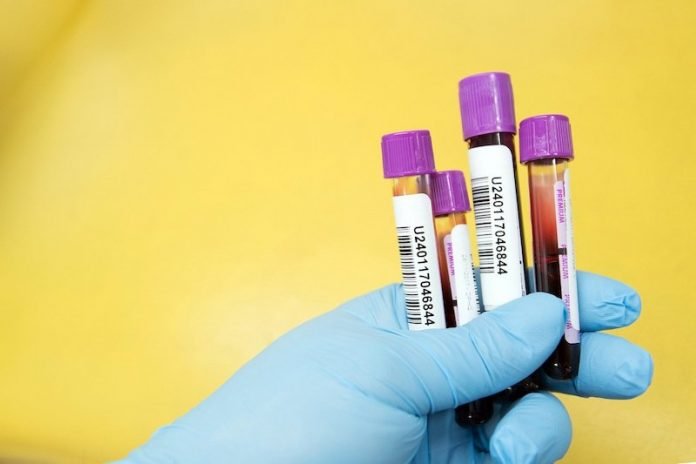
In a recent study published in Nature Communications, researchers found that a single biomarker can accurately indicate the presence of underlying neurodegeneration in people with cognitive issues.
They found levels of a protein called neurofilament light chain (NfL) in the blood can identify those who may have neurodegenerative diseases such as Down’s syndrome dementia, motor neuron disease (ALS) and frontotemporal dementia when clinical symptoms are very mild.
The research suggests a set of age-related cut-off levels of NfL which could inform its potential use in primary care settings through a simple blood test.
Though it is not specific for any one disorder, it could help in services such as memory clinics as a rapid screening tool to identify whether memory, thinking or psychiatric problems are a result of neurodegeneration.
The study is from King’s College London. One author is Dr. Abdul Hye.
Neurodegenerative diseases are debilitating conditions that result in ongoing degeneration or death of nerve cells, leading to problems in thought, attention and memory.
Current biomarkers used to identify neurodegenerative disorders are taken from the fluid that surrounds the brain and spinal column (cerebrospinal fluid—CSF) which has to be extracted using an invasive procedure called lumbar puncture.
In the study, advances have been made to use biomarkers from the blood which would provide a more accessible and comfortable assessment.
A central and irreversible feature in many neurodegenerative disorders is damage to the nerve fiber which results in the release of neurofilament light chain (NfL).
Using ultra-sensitive tests, NfL can be detected in blood at low levels and is increased in a number of disorders, unlike phosphorylated tau which is specific for Alzheimer’s disease.
This means NfL can be of use in the diagnostic process of many neurodegenerative diseases most notably in this study Down’s syndrome dementia, ALS and frontotemporal dementia.
The team says for neurodegenerative diseases like Alzheimer’s, Parkinson’s or motor neuron disease, a blood test to allow early diagnosis and help us monitor disease progression and response to treatment would be very helpful.
The study examined 3138 samples, including people with no cognitive impairment, people with neurodegenerative disorders, people with Down syndrome and people with depression.
The team showed that concentrations of NfL in the blood were higher across all neurodegenerative disorders compared to those with no cognitive problems, the highest being in people with Down’s syndrome dementia, motor neuron disease and frontotemporal dementia.
The study also showed that although blood-based NfL could not differentiate between all the disorders, it could provide insight into different groups within certain disorders.
For example, in those with Parkinson’s a high concentration of NfL indicated atypical Parkinson’s disorder and in patients with Down syndrome, NfL levels differentiated between those with and without dementia.
If you care about dementia, please read studies about this drug may help treat Lewy body dementia and findings of mid-life heart disease prevention may prevent later dementia.
For more information about dementia and your health, please see recent studies about these two types of dementia linked to Parkinson’s disease and results showing that these common jobs can increase dementia risk by more than half.
Copyright © 2021 Knowridge Science Report. All rights reserved.



